For as long as I can remember, I have always felt safe in Queer spaces. Even before I discovered my own Queerness.
During my last year of college, half of the time when I would tell my mother that I was working late at the school newspaper (as the news editor), I actually sneaked away to dance in the gay clubs on Montrose so I could feel that ecstasy, that safety that I could only access when I was surrounded by smoke and shirtless boys.
I know now that those moments were among some of my first tastes of liberation — for my body and my soul.
As we close out Pride month, I am reflecting on these moments of how my Queerness and Queer spaces have freed me. And how Queerness to me is not just an identity but also a practice — one in which we can all practice.
The other day, a new friend asked me about my Queer journey, surprised that I used to be married to a man. It’s always interesting to me what comes up in those moments when people ask, as the answer has changed through the years.
As someone who discovered their Queerness later in life, I often wonder if I would have realized the full spectrum of my attraction towards humans sooner if I had been exposed to Queer culture more.
The Qweens in my life

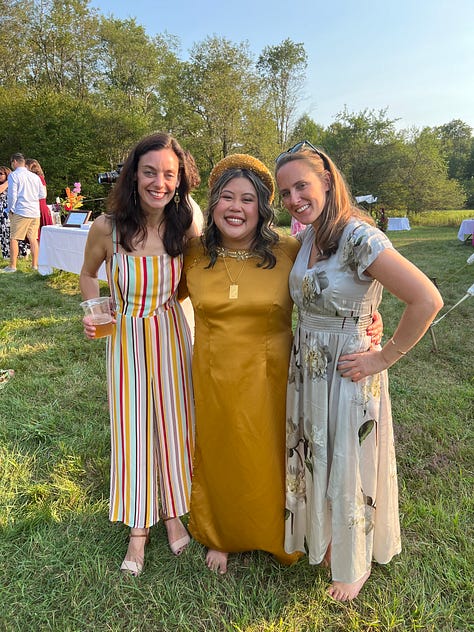
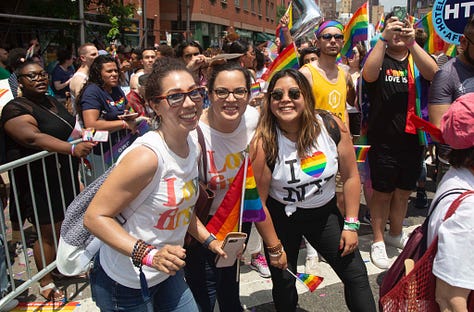
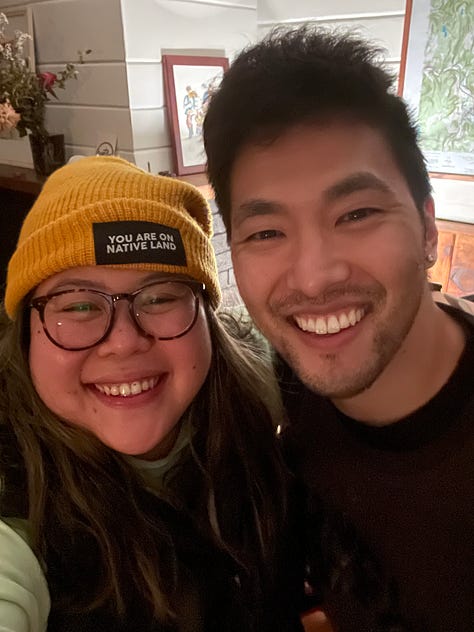
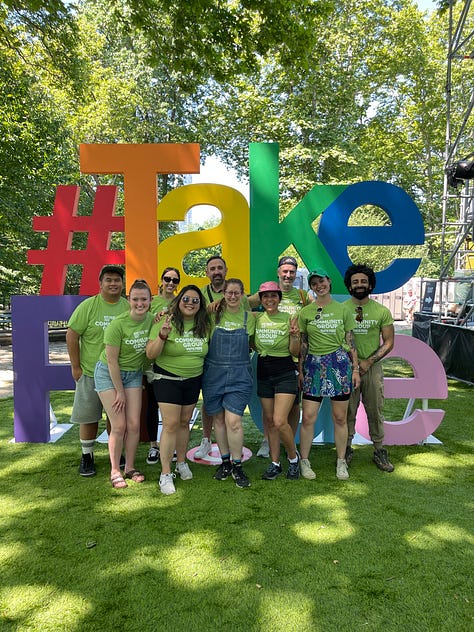
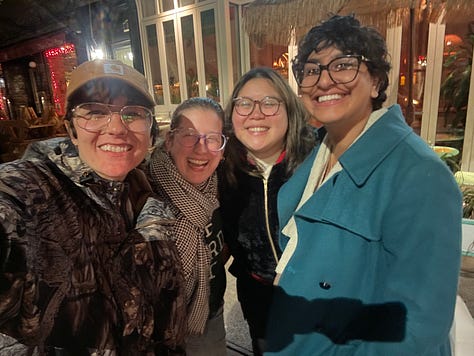
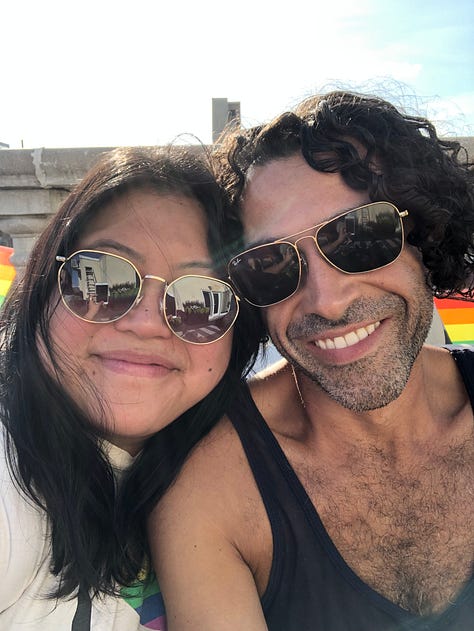
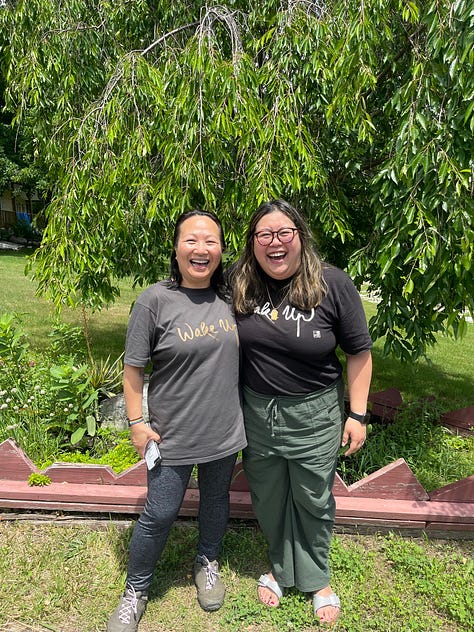
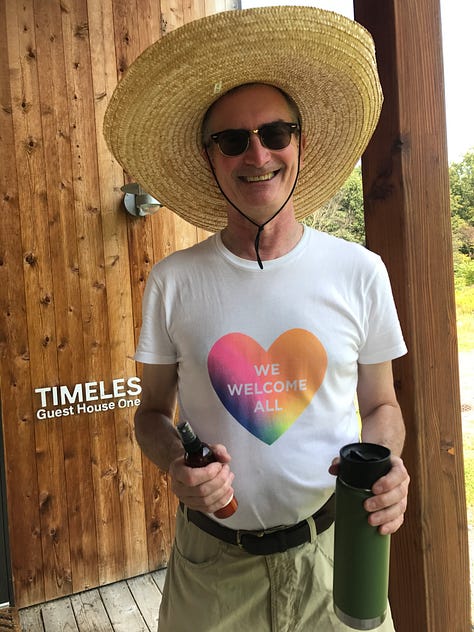
I don’t think I can really talk about my Queerness without talking about community. So much of my identity was discovered, strengthened and supported through folks who went through it before me — from my power-lesbian-badass-activist friend to my gay cowboy brother.
I mentioned recently that my wife and I traveled to Paris and Corsica for a long awaited honeymoon but the entire trip was prompted by my dear friend’s wedding in Scotland.
This friend was and is a special one and one of the key people who helped me navigate the treacherous early days of my Queerness with much gentle love, support and grace. Throughout her wedding weekend, my heart swelled from mudita for her, that this human who taught me so much about loving myself found someone who loved her unconditionally. I kept reflecting on the endless nights we would spend at the Cubby Hole and how grateful I was to have a friend like that to help shepherd me and hold my hand during a time when I was more confused about my identity than I was sure of myself.
Growing up, I was lucky to have so many gay guy friends, but there weren’t a lot of lesbians or Queer women in my little humble suburban Texas life. This friend was special in the fact that I only had a handful of Queer women and lesbians I felt comfortable enough to be vulnerable with to share my confusion with. What we Queers don’t often talk about is that the fear of being judged and not accepted is true in both hetero and homo circles — particularly if you don’t fit into a certain stereotype or have a “typical” story. I was lucky enough to have that friend and others who loved me for me and my own unique journey along the way.
Since then, I’ve been lucky to have found more community — from folks who hold the special and tender intersection of being both API and Queer to listening to stories from a dear friend who fought for gay marriage. I’ve realized through the years that there are nuances to each of our Queer stories; tender human details that are specific to each and every one of us. And if the Queer community has taught me anything, it is that there is every color in that rainbow, hunni. We are bright, beautiful humans that don’t fall into any category or box.
Thank goodness.
And I’m grateful to every single human who came before me who paved the way for me to live my life authentically as I do.
Waking up to Queerness
When I first came out to my mom, her response was “I don’t care who you date, just stop dating losers.” It was hard not to laugh at the truth of my mother’s biting, yet loving tongue. (Her assessment was not wrong by the way!)
It was a shared sentiment among my friends who were seeing me yolo through all the five boroughs, trying to make sense of my sexuality. Because I married my high school sweetheart and was with him for 12 years, much of the sexual exploration that happens in my early 20s didn’t happen until a decade later. I entered my Saturn Return lost between the confines and limitations of labels and was never quite sure what box to check on the dating apps, feeling both confused and excited by the possibility of finding someone on the other side of that swipe. (Bisexual? I mean, technically sure but doesn’t feel right. Lesbian? No, that’s not really right either. Gay? Isn’t that just for guys? Pan? All I think about is that movie.)
It wasn’t until I met my now wife that I heard the word Queer used in a non-derogatory way. (This is why I make the conscious decision to capitalize it.) On our first date, she explained how the word “Queer” was a reclamation for her and a liberating framework for her to not just identify sexually but also a way to see the world.
To say I was smitten was an understatement.
Queer theory emphasizes the fluid and humanly performed nature of sexuality – or better, sexualities. It questions socially established norms and dualistic categories with a special focus on challenging sexual (heterosexual/homosexual), gender (male/female), class (rich/poor), racial (white/non-white) classifications…Queer theory perceives sexuality and gender as social constructs that shape the way sexual orientation and gender identity are displayed in public – and thereby often reduced to black-and-white issues that can be manipulated or distorted.
— Markus Thiel, e-International Relations
Suddenly my feeling of not fitting neatly into any box, or binary, had a label — a label to undo all labels.
This was Queerness.
On that date, not only did I meet the love of my life, but I finally felt an embodied sense of liberation that I was so hungry for. The same kind I used to find on those sweaty, smoke-machine-filled gay clubs when I danced like no one was watching.
Queering as a Practice
Once I started Queering my life, everything changed. My mind unspooled storylines and ideas that I had been conditioned to think about for so long — like what a woman should do in a relationship (cook) versus what a man should do in a relationship (provide). Being with Jess wasn’t just wonderful and loving, it totally shifted my perception of reality in a way that I didn’t think was possible.
This at its core is Queerness.
So how does this come back to mindfulness? To Buddhism?
To me, Queering as a practice is stopping and looking at the realities and formations of your mind and thoughts and asking yourself if it should and needs to be the way you are intending. Queering as a practice is opening up your mind to a different reality, a different norm; it is understanding that binaries are limiting, oppressive and has and continues to cause much suffering in the world.
Queering to me is how I better understand the Buddhist concept of emptiness — that we are essentially creating the reality we are living. If that is the case, should we not live the life we want to live?
So, here’s the bit of practical mindfulness for you to sit with, to play with this Pride month and beyond: Next time you are in a situation where black-and-white (or us vs. them) thinking seem to be the only option, try this:
Stop.
Take a breath and a break from the situation.
Come back to it when you’re on solid ground and ask yourself: How can I Queer this? What else is true here? What else is possible beyond the norm? What can exist in the gray here? How can you be in the layers of this rainbow-filled world that you might not be able to see in this moment? Allow yourself to dream a little, even if it feels impossible. Trust me, it’s not.



Mom response for the ages: “I don’t care who you date, just stop dating losers.”
Gorgeous Post, Kim. Thanks for sharing your journey and the things you learned along the way. This one hit my <3 today.